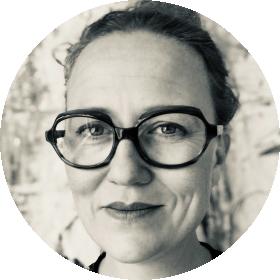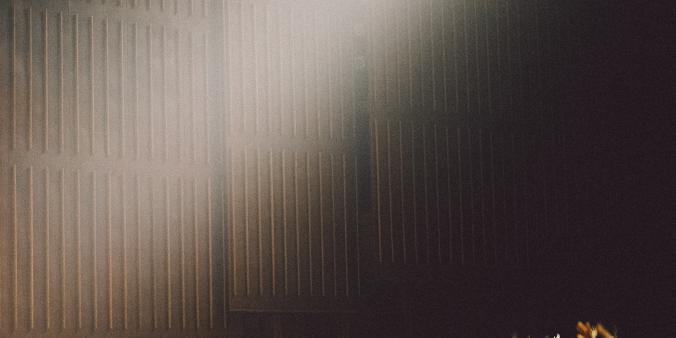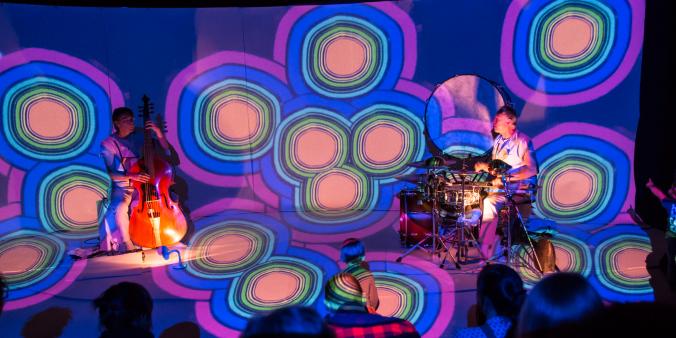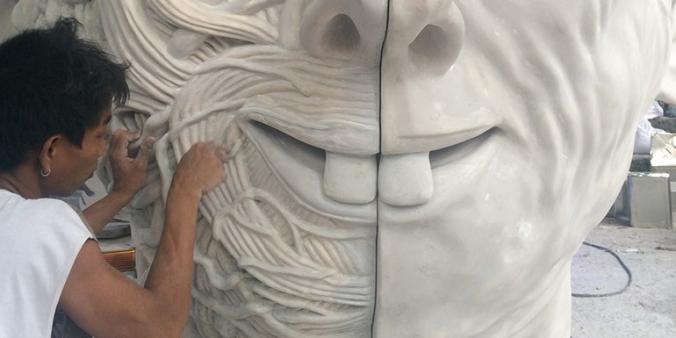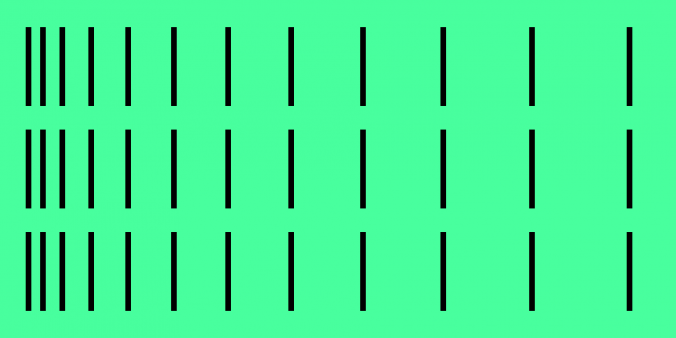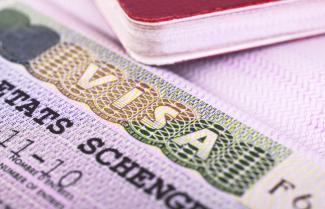
When inviting international artists, makers, or other cultural professionals from outside Europe to your festival, exhibition, residency, or conference in the Netherlands, it is important to take into account that they may need a Schengen visa to travel.
Although the visa application itself is the responsibility of the invited artist or cultural professional, host organisations play a crucial role in ensuring a smooth process. Making sure the application process can start well before the planned departure, providing the correct invitation documents, and understanding the requirements for proof of financial means can make the difference between a successful visa application and a last-minute cancellation. A refusal, or a visa not issued in time, not only limits opportunities for the invited artist, but also leaves you as the organiser with gaps in your programme and denies audiences in the Netherlands the chance to experience valuable artistic talent.
To help cultural organisations navigate this process, DutchCulture’s Mobility Info Point has developed this practical Q&A with clear answers to common questions such as: who needs a visa, what documents are required, and what to do if an application is refused.
Q&A
- What is a Schengen visa?
A Schengen visa is a short-stay visa that allows travel within the Schengen Area (29 European countries) for a maximum of 90 days within a 180-day period. The procedures and conditions for issuing a Schengen visa are defined in European legislation, in the so-called Visa Code.
- Who exactly needs a Schengen visa?
A Schengen visa is required for artists and cultural professionals who are not nationals of an EU or EEA member state, or Switzerland, and whose nationality appears on the list of countries whose citizens need a visa to enter the Schengen Area. To check who needs a visa to enter the Netherlands please consult the official government website. A full list of visa-required and visa-exempt countries can be found in the annex of Regulation (EU) 2018/1806 of the European Parliament and of the Council. Or consult this world map om the European Commission's website, which shows the Schengen Area as well as visa-required and visa-exempt countries.
- Which nationalities do not need a visa?
There are visa-required and visa-exempt countries. Nationals of visa-exempt countries do not need a Schengen visa but must still follow the same rules, such as the 90 days in 180 days maximum stay. Examples of visa-exempt countries include the UK, USA, Canada, Argentina, Brazil, Chile, Mexico, Peru, Japan, Malaysia, New Zealand, and Australia. A full list of visa-required and visa-exempt countries can be found in the annex of Regulation (EU) 2018/1806 of the European Parliament and of the Council. Or consult this world map om the European Commission's website, which shows the Schengen Area as well as visa-required and visa-exempt countries.
- Which countries can your guest travel to with a Schengen visa?
A Schengen visa gives acces to all countries in the Schengen Area: Austria, Belgium, Bulgaria, Croatia, Czech Republic, Denmark, Estonia, Finland, France, Germany, Greece, Hungary, Iceland, Italy, Latvia, Liechtenstein, Lithuania, Luxembourg, Malta, Netherlands, Norway, Poland, Portugal, Romania, Slovakia, Slovenia, Spain, Sweden, Switzerland.
- Can your guest travel to the Caribbean part of the Kingdom with a Schengen visa?
Travel to the Caribbean parts of the Kingdom of the Netherlands is only possible with a valid multiple-entry Schengen visa. Your guest does not need to travel through the Schengen Area before or after the Caribbean stay.
If the only destination is one of the Caribbean parts of the Kingdom (Aruba, Bonaire, Curaçao, Saba, Sint Eustatius, Sint Maarten), a Short-stay Caribbean visa is required instead. Please note that a Caribbean visa is not valid for travel to the (European) Netherlands or other Schengen countries.
- How long can you stay in the Schengen Area with a Schengen visa?
With a Schengen visa your guest may stay in the Schengen Area for up to 90 days within any 180-day period. This means you must look at the 180 days preceding the intended departure date and count how many days your guest has already spent in the Schengen Area. The total must not exceed 90 days. To verify this, you can use the EU Schengen-calculator.
- Where to apply for a Schengen visa?
A Schengen visa must be applied for by your guest at an external service provider (VFS Global or TLScontact) or the embassy or consulate of the main destination of the trip, meaning the Schengen country where your guest will spend the most time. If the stay is equally divided across multiple Schengen countries, the application should be submitted to the embassy or consulate or external service provider (VFS Global or TLSContact) of the country of first entry. For more info on where to apply for a Schengen visa for the Netherlands, please consult the official government website.
- How far in advance can a Schengen visa be applied for?
A visa application can be submitted up to 6 months before the travel date. It is strongly recommended to encourage and enable your guest to submit their visa application as early as possible, and no later than 45 days before the planned trip, to allow enough time for processing and for any additional questions or document requests.
- What documents are needed for the visa application?
- Completed visa application form (you can find a harmonised version of the application form in Annex I to the Visa Code)
- Valid passport (valid for at least 3 months after departure from the Schengen Area and issued within the last 10 years)
- Recent passport photo (meeting official specifications)
- Travel insurance policy for your guest (with a minimum coverage of €30,000 for medical expenses in all Schengen countries), to be arranged either by the host organisation or by the artist themselves.
- Proof of the cultural purpose of travel (invitation letter from the cultural host organisation, see below)
- Proof of accommodation (e.g. hotel reservation, confirmation of accommodation in an artist residency or other official guest facility of the inviting organisation, or proof of private accommodation with this form)
- Proof of sufficient financial means (demonstrating coverage of travel and accommodation expenses, insurance, and at least €55 per day for the full duration of the stay. Costs may be covered by the host organisation, the applicant, or shared between both parties which should be clearly indicated in the invitation letter of the host organisation)
- Proof of intent to return and socio-economic ties to the home country (e.g. a return flight reservation, proof of financial means in the country of residence such as bank staments, proof of employment, proof of real estate property, proof of family ties or other documents demonstrating obligations in the home country)
You can find the required documents listed in Annex II to the Visa Code. Additionally, always consult the checklist provided by the visa centre (VFS Global or TLS) or the consulate where the application is submitted.
- When is a financial sponsorship required?
Financial sponsorship is required when your guest cannot demonstrate sufficient financial means to cover at least €55 per day for the entire duration of their stay. Only private individuals can act as sponsors by completing the sponsorship and/or private accommodation form. For cultural visits, this is often not necessary, as host organisations often provide a fee or per diem. More information on sponsoring an applicant is available on the official government website.
- When is proof of private accommodation required?
Proof of private accomodation is required when the invitee is not staying in a hotel or a residency, but with a private individual. For this, the hosting private individual needs to complete the sponsorship and/or private accommodation form.
- What should be included in an invitation letter?
- Personal details of the invited artist or cultural professional (include the full name, home address, passport number, and date of birth)
- Information about the host organisation (provide a short description of your organisation, the nature of the programme or event, and, if applicable, mention relevant funders, sponsors, or partners involved)
- Purpose of the visit (clearly describe the reason for the visit, for example, participation in a concert, festival, residency, or another professional programme, and explain why the participation of the invited artist or cultural professional is important for the event. Include a reference or link to the relevant programme online where the invitee is mentioned, or attach a printed flyer or programme booklet)
- Duration of the stay (specify the exact start and end dates of the event or programme, as well as the intended travel dates)
- Information about where and how the artist will be accommodated (if applicable include a hotel reservation, or proof of private accommodation with this form).
- Fees and coverage of costs (indicate whether the host organisation covers travel, accommodation, and insurance expenses. Also specify whether the artist or cultural professional will receive a fee and/or a daily allowance (per diem). As part of the Schengen visa application process, applicants are required to provide proof of sufficient financial means. They must demonstrate that all travel and accommodation expenses, insurance costs, and a minimum amount of €55 per day for the entire duration of their stay in the Netherlands are secured. These expenses may be covered by the host organisation, by the applicant personally, or shared between both parties. The invitation letter must clearly state who is responsible for which costs.)
- What type of insurance is needed?
A medical travel insurance, arranged either by the applicant or the host organisation. The policy must meet the following requirements:
- Issued in the name of the applicant
- Valid in all Schengen countries
- Covers the entire duration of the stay
- Minimum coverage of €30,000
- Is an artist with a Schengen visa allowed to work during their stay in the Netherlands?
In general, holders of a Schengen visa are not permitted to work. However, there are exceptions for artists, and the rules vary by EU Member State. For those visiting the Netherlands, the following applies: artists, musicians, and their essential support staff (such as technical or artistic companions), as well as visual artists, curators, and restorers, may carry out paid or unpaid short-term cultural work for up to 6 consecutive weeks within a 13-week period without a work permit. If the engagement in the Netherlands exceeds 6 consecutive weeks, a work permit (TWV) will be required.
For more information, please read our article: Working in the Netherlands as a non-EU citizen.
- How much does a Schengen visa cost?
The consular visa fee is €90. In addition, when applying through an external service provider (VFS Global or TLScontact), a service fee is charged. Service fees vary by country. Please note that visa fees are non-refundable in case of a refusal.
Certain cultural applicants may be exempt from paying the visa fee (however, service fees still apply). These exemptions include:
- Representatives of non-profit organisations under 26 attending a cultural (or sports or educational) event
- Children (0-5 years)
- Students, pupils, and accompanying teachers
- Researchers attending seminars or conferences
- How long does visa processing take?
The processing time begins once the Consular Services Organisation (CSO), the authority responsible for assessing the application, receives the visa file. In most cases, this corresponds to the date on which the applicant submits their application at the external service provider (VFS Global or TLScontact) or at the embassy/consulate. The standard processing time is 15 calendar days. However, processing may take up to 45 days during peak periods or if additional documentation or verification is required.
- How to track the status of a visa application?
You can track the status of a visa application for the Netherlands online. The method depends on where the application was submitted :
- VFS Global: use the reference number (starting with the city code + NL) provided at submission.
- TLScontact: log in using your email address and password.
- Dutch embassy or consulate-general: use the tracking number received (if provided) when submitting the application.
- What is the difference between single-entry and multiple-entry Schengen visas?
A single-entry visa allows your guest to travel from a country outside the Schengen area to the Netherlands (or other Schengen countries) 1 time.
With a multiple-entry visa, your guest can travel as often as they wish from a country outside the Schengen area to the Netherlands (or other Schengen countrie)s, as long as the visa is valid. Remember that they are not allowed to stay in the Schengen area for longer than 90 days within a 180-day period.- How can an artist or cultural professional qualify for a multiple-entry visa?
The duration and type of a Schengen visa are determined in accordance with the Visa Code. For first-time applicants, or applicants receiving a visa for the second or third time within a two-year period, the visa is typically issued with limited validity and for single entry only.
Applicants who have travelled to the Schengen area more frequently may become eligible for visas with longer validity periods (from 1 to 5 years, or until the expiry of their passport) and multiple entries.
Artists or cultural professionals who are applying for a second- or third-time visa and can demonstrate a clear need for multiple entries, for example, if they must travel outside the Schengen area during their stay, or if they have confirmed future engagements requiring frequent travel to the Schengen area, may be granted a multiple-entry visa. Approval is at the discretion of the consular authorities.
- Does the Orange Carpet Visa Programme also apply to the cultural sector?
Yes. Each Dutch embassy has the option to implement the Orange Carpet Visa Programme, and most larger missions have such a programme in place. It is up to each embassy or consulate to decide which organisations qualify, and this may include local cultural institutions in the country where the mission is based. Eligibility decisions are made solely by the respective embassy or consulate. inclusion. Currently, a limited number of countries offer the Orange Carpet Visa Programme.
Please note that many embassies and consulates primarily apply the programme to the business sector. However, if a cultural organisation travels frequently to the Netherlands, it may be considered for inclusion.
- What are reasons for a Schengen visa refusal?
The grounds for refusing a Schengen visa are outlined in Article 32 of the Visa Code. The most common refusals for visas for cultural purposes are:
- Insufficient justification of the purpose and conditions of stay
- Insufficient proof of financial means
- Lack of evidence of intent to return to the home country
- What can you do if a visa is refused?
If a visa is refused, the applicant will receive a written decision stating the grounds for refusal. The applicant has two options:
- Submit a new application, providing additional documents to address the reasons for refusal, or
- Lodge an appeal within 4 weeks (with the IND), and if necessary, pursue legal proceedings afterwards.
In practice, submitting a new application is often faster than following the appeal procedure. When reapplying, it is essential to directly address the reason(s) for refusal (for example, by including stronger financial evidence or an updated support letter).
It is also possible to submit a new visa application while an appeal is still pending. However, once either the appeal is concluded or the new application is approved, the other procedure will be discontinued.
- What information is shown on a visa for the Netherlands?
- ‘Valid for’ tells you for which countries the visa is valid
- From' and 'Until' tells you how long the visa is valid for ('From’: the first day that you can enter the Schengen Area; ‘Until’: the last day by which your guest must leave the Schengen Area
- ‘Duration of stay’ tells you how many days your guest may stay in the Netherlands and other Schengen countries, within the period of validity mentioned at 'From' and ‘Until’. This is a maximum of 90 days within any 180-day period
- At ‘Type’ you can see what type of visa your guest has. It can be:
A: airport transit visa
C: short-stay Schengen visa
D: authorisation for temporary stay (MVV) - ‘Number of entries’ tells you how often your guest can use the visa to enter the Netherlands or other Schengen countries:
‘1’: A single-entry visa gives you permission to enter the Netherlands or other Schengen countries from a country outside the Schengen area 1 time.
'MULT’: A multiple-entry visa gives you permission to enter the Netherlands or other Schengen countries from a country outside the Schengen area more than 2 times.
More info on the official website of the government.
- Can a Schengen visa be extended?
A Schengen visa can only be extended in exceptional situations, such as cases of force majeure or urgent humanitarian reasons (for example, serious illness or the death of an immediate family member). Extensions are not granted for reasons such as rebooking travel, extended performances, or changes in itinerary.
If an extension is required due to an emergency, the request must be submitted to the Dutch immigration authorities (IND) before the visa expires. Supporting documentation will be required to justify the request.
- What happens if your guest stays longer than permitted?
If a guest remains in the Schengen Area beyond the allowed period, they may face a fine, an entry ban, and difficulties obtaining a Schengen visa in the future.
- Who can you contact if something goes wrong or you don’t understand the process?
Start by visiting www.nederlandwereldwijd.nl or www.netherlandsworldwide.nl for general information and guidance.
If you still need support, feel free to contact our Mobility Info Point. We offer tailored advice and information on the visa process and related matters, specifically for artists and cultural professionals. The Mobility Info Point works closely with the International Cultural Policy Unit (ICE) of the Ministry of Foreign Affairs.
Although we aim to keep the information on this page as up-to-date as possible, no rights can be derived from it. We always advise you to double-check with the appropriate government authorities and institutions, many of which are linked from this page.
